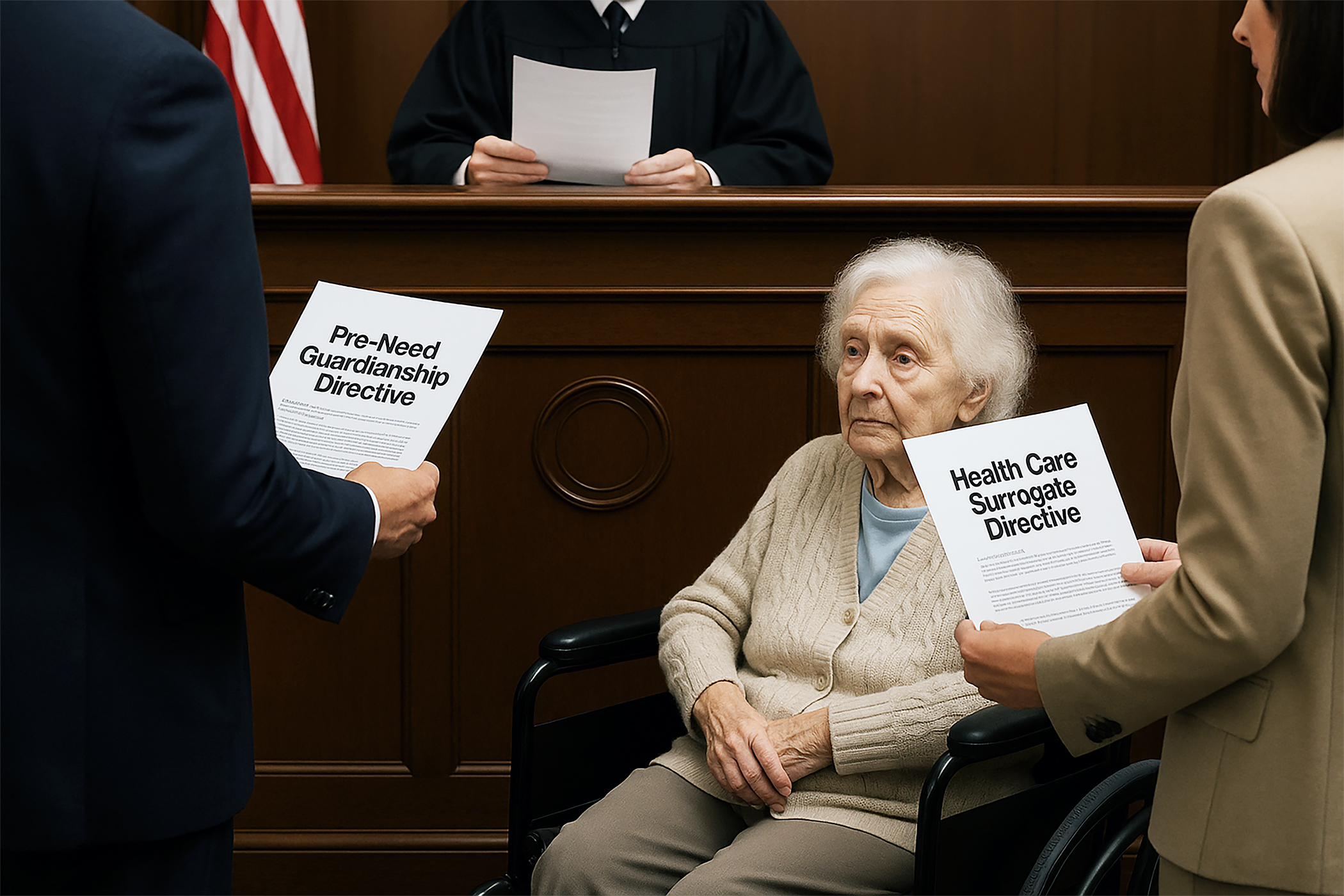
Health Care Surrogates and Pre-Need Guardians: 'What They Really Mean'
When it comes to planning for the future, two documents often cause confusion, especially for those named to act on someone else’s behalf. These are:
- The Designation of Health Care Surrogate and HIPAA Release Authorization, and
- The Pre-Need Guardian Designation.
Although both deal with medical care and decision-making, they serve very different purposes. Let’s take a closer look at each and clear up some common misunderstandings.
1. The Health Care Surrogate and HIPAA Release Authorization
This document allows someone (called the surrogate or health care proxy) to make medical decisions for another person if that person can’t do so for themselves.
That might happen because of:
- A serious illness or injury,
- A temporary or permanent loss of consciousness, or
- Cognitive decline, such as dementia.
The surrogate “steps into the shoes” of the person who signed the document (the principal) and can access their medical information, talk to doctors, and make treatment choices, but only when that person is unable to make those decisions on their own.
It’s important to note that this document does not give authority to have the person evaluated or declared incompetent. It is not a tool for taking away someone’s autonomy or forcing medical evaluations. Its sole purpose is to ensure someone trusted can make medical decisions when the person who created the document cannot.
2. When a Guardianship Becomes Necessary
If a person shows signs of serious cognitive decline and loved ones believe they can no longer make safe or sound decisions, Florida law has a specific court process to determine incapacity.
A family member, friend, or other interested person (called the petitioner) must file a Petition to Determine Incapacity in the Probate Division of the Circuit Court where the person lives.
The court then:
- Appoints a three-member examining committee, usually a doctor, a psychologist, and a social worker or layperson, to meet with the person and review their medical and mental condition.
- Receives written reports from each examiner.
- Holds a hearing before a judge who reviews all evidence and decides whether the person is partially or totally incapacitated.
If incapacity is found, the court then determines whether a guardian is needed. Before doing so, the judge must first consider whether less restrictive alternatives already exist, such as:
- A power of attorney,
- A trust, or
- A Pre-Need Guardian Designation.
Only if those options are insufficient will the court appoint a guardian, and even then, the guardian’s powers are limited to what the judge authorizes.
3. The Pre-Need Guardian Designation
A Pre-Need Guardian Designation allows a person, while still fully competent, to name who they would want to serve as their guardian if they ever become incapacitated in the future.
This document does not give that person immediate authority to act. Instead, it tells the court, “If I ever need a guardian, I want this specific person to serve.”
When the court reviews a guardianship case, it will give preference to the individual named in the Pre-Need Guardian document, but it still retains final say. The judge can appoint someone else if it believes doing so is in the best interest of the incapacitated person.
Florida guardianship law, found in Chapter 744 of the Florida Statutes, emphasizes that a guardianship should limit personal rights only as much as absolutely necessary. Courts are directed to favor less restrictive alternatives such as advance directives, powers of attorney, or trusts whenever possible.
4. How the Two Documents Work Together, and Their Limits
It’s easy to see why these two documents are sometimes confused. However, their functions are very different:

To summarize:
- A Health Care Surrogate and HIPAA Release document cannot be used to justify medical evaluations or to take control of someone’s rights.
- A Pre-Need Guardian Designation does not make someone a guardian, it merely names who should be chosen if a court later decides guardianship is necessary.
In both cases, the court remains the ultimate authority on whether a guardian is appointed and how much power that guardian has.
Final Takeaway
These documents are designed to protect, not control, the people who create them. Understanding their limits prevents unnecessary legal battles and ensures that personal rights are respected while still providing a safety net for future care.
When properly used, both documents allow individuals to maintain dignity, choice, and peace of mind, knowing that trusted hands are ready if ever needed.
Have Questions About Choosing a Trusted Surrogate or Pre-Need Guardian?
Whether you’re wondering why they matter, how they protect you, or simply who to choose, Jackson Law, P.A. is here to guide you. Our mission is to empower you with clear, practical insight so you can make confident decisions for yourself and for the people you love most.
Contact us online or call 407-477-5046 to schedule a consultation.

